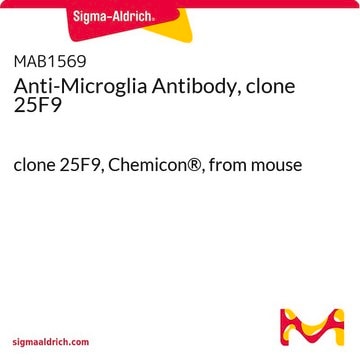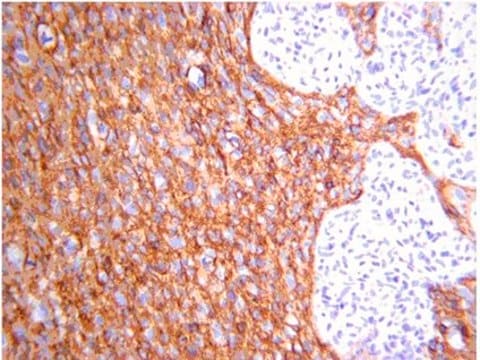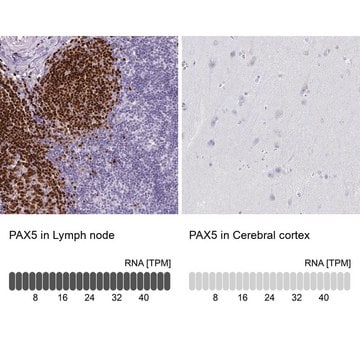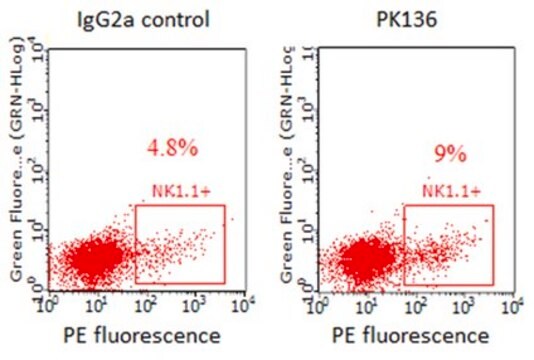MABF149A
Anti- CD161 (NK1.1) (mouse), PE, clone PK136 Antibody
clone PK136, from mouse, PE
Sinónimos:
Microtubule-associated protein 4, MAP-4, CD161 (NK1.1)
About This Item
Productos recomendados
biological source
mouse
Quality Level
conjugate
PE
antibody form
purified antibody
antibody product type
primary antibodies
clone
PK136, monoclonal
species reactivity
mouse
packaging
antibody small pack of 25 μg
technique(s)
flow cytometry: suitable
isotype
IgG2aκ
UniProt accession no.
target post-translational modification
unmodified
Gene Information
human ... MAP4(4134)
Categorías relacionadas
General description
Immunogen
Application
Inflammation & Immunology
Immunoglobulins & Immunology
Quality
Flow Cytometry Analysis: 0.5 μg from a representative lot detected CD161 (NK1.1) in one million C57Bl/6 splenocytes stained with APC Anti-mouse CD3e.
Physical form
Storage and Stability
Note: It is recommended to store the product undiluted at 2-8°C and protected from prolonged exposure to light. Do not freeze.
Other Notes
Disclaimer
¿No encuentra el producto adecuado?
Pruebe nuestro Herramienta de selección de productos.
Storage Class
12 - Non Combustible Liquids
wgk_germany
nwg
Certificados de análisis (COA)
Busque Certificados de análisis (COA) introduciendo el número de lote del producto. Los números de lote se encuentran en la etiqueta del producto después de las palabras «Lot» o «Batch»
¿Ya tiene este producto?
Encuentre la documentación para los productos que ha comprado recientemente en la Biblioteca de documentos.
Nuestro equipo de científicos tiene experiencia en todas las áreas de investigación: Ciencias de la vida, Ciencia de los materiales, Síntesis química, Cromatografía, Analítica y muchas otras.
Póngase en contacto con el Servicio técnico








